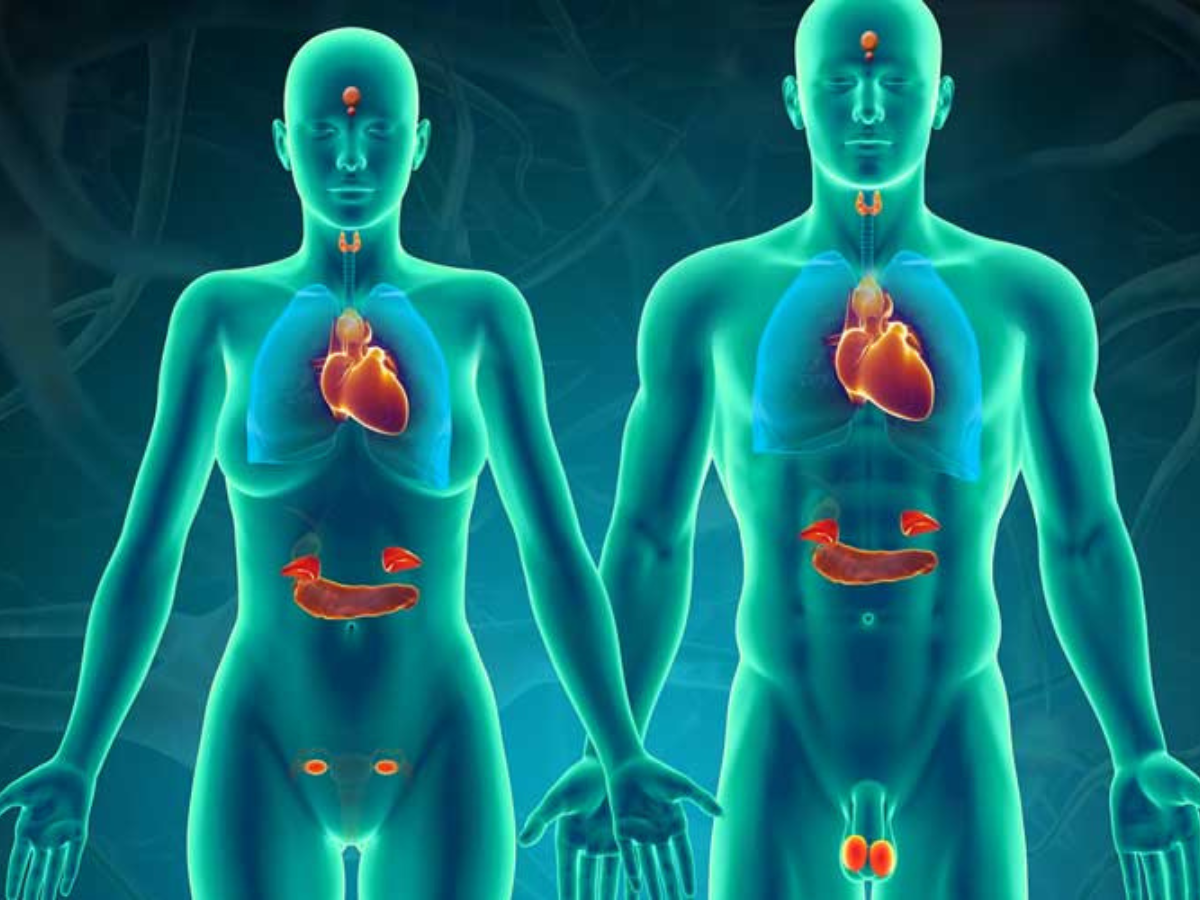Endocrinology
Endocrinology is a specialized field of medicine focused on diagnosing and treating hormonal disorders that affect the endocrine system. Common conditions include diabetes, thyroid disorders, adrenal gland issues, and reproductive hormone imbalances. Endocrinologists play a crucial role in managing these conditions through personalized treatment plans and patient education. Regular visits to an endocrinologist are essential for individuals with hormonal imbalances, as early detection and management can prevent complications and improve overall health. By prioritizing hormonal health through a balanced diet, regular exercise, and stress management, individuals can enhance their well-being and quality of life.

About Endocrinology
Endocrinology is a specialized field of medicine that focuses on the diagnosis and treatment of hormonal imbalances and disorders affecting the endocrine system. This system is responsible for producing hormones that regulate various bodily functions, including metabolism, growth, reproduction, and mood. Endocrinologists are trained to address a wide range of conditions, from diabetes and thyroid disorders to adrenal and pituitary gland issues.
Common Endocrine Disorders
Diabetes Mellitus: Diabetes is one of the most prevalent endocrine disorders, characterized by high blood sugar levels due to insulin deficiency or resistance. There are two main types: Type 1 diabetes, which is usually diagnosed in children and young adults, and Type 2 diabetes, which is more common in adults and often linked to obesity. Effective management includes lifestyle changes, medications, and regular monitoring of blood sugar levels.
Thyroid Disorders: The thyroid gland produces hormones that regulate metabolism. Common conditions include hypothyroidism (underactive thyroid) and hyperthyroidism (overactive thyroid). Symptoms may include fatigue, weight changes, and mood fluctuations. Treatments often involve hormone replacement therapy or medications to manage hormone levels.
Adrenal Disorders: Disorders of the adrenal glands can lead to conditions such as Cushing’s syndrome (excess cortisol production) and Addison’s disease (insufficient cortisol production). Endocrinologists use blood tests and imaging studies to diagnose these disorders and create personalized treatment plans.
Pituitary Disorders: The pituitary gland, often called the “master gland,” controls various hormone functions throughout the body. Disorders can lead to growth hormone deficiencies or excesses, affecting growth and development. Treatment may involve hormone therapy or surgery, depending on the condition.
Reproductive Hormone Disorders: Hormonal imbalances can affect reproductive health in both men and women. Conditions such as polycystic ovary syndrome (PCOS) and low testosterone levels in men can lead to infertility and other health issues. Endocrinologists work with patients to restore hormonal balance and improve reproductive health.
Importance of Endocrinological Care
Regular check-ups with an endocrinologist are essential for individuals with known hormonal disorders or those at risk for developing them. Early diagnosis and treatment can prevent complications and improve quality of life. Endocrinologists also provide education and support, helping patients understand their conditions and manage their health effectively.
Tips for Maintaining Hormonal Health
To promote hormonal balance, consider the following tips:
Healthy Diet: A balanced diet rich in whole foods, fruits, vegetables, and healthy fats supports endocrine health and helps maintain stable blood sugar levels.
Regular Exercise: Physical activity helps regulate insulin sensitivity, maintain a healthy weight, and boost mood, contributing to overall hormonal balance.
Stress Management: Chronic stress can lead to hormonal imbalances. Techniques such as meditation, yoga, and deep-breathing exercises can help manage stress levels.
Adequate Sleep: Prioritizing quality sleep is crucial for hormone regulation. Aim for 7-9 hours of sleep per night to support overall health.
Conclusion
Endocrinology plays a critical role in understanding and managing hormonal health. With a wide range of conditions affecting millions of people, regular consultations with a qualified endocrinologist are vital for maintaining hormonal balance and overall well-being. By prioritizing endocrine health and following expert recommendations, individuals can enhance their quality of life and prevent potential complications.

Endocrinology
- Congenital Adrenal Hyperplasia
- Lipid Disorders
- Pediatric Endocrinology
- Hyperthyroidism Treatment
- Pcos Treatment
- Thyroid Biopsy
